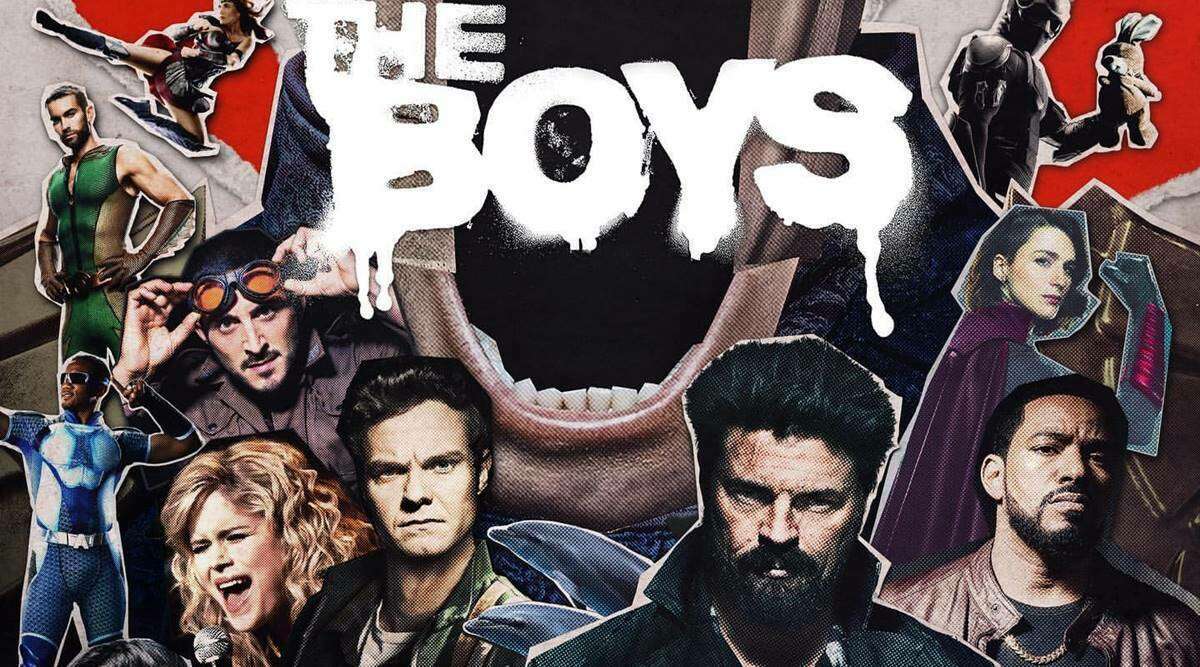Morality in The Boys
The Boys is one of the best-written TV shows of all time. It depicts a world where superheroes are celebrities and the spotlight of the media industry. Unlike regular superheroes, warriors of justice who work to protect the people, superheroes in The Boys are depraved, greedy, dishonest actors of capitalism–much like real celebrities (the show is iconic for its satire). The show follows the titular group of non-superhero vigilantes as they battle the corruption of the superhero industry in 24 of the most thought-provoking, exhilarating episodes of television history. This article won’t contain major spoilers for The Boys, but I highly recommend you watch it.
The most exciting part of The Boys is the way it plays with morality. Most shows have morally nuanced characters who objectively lean towards good or evil, such as Naruto or Doflamingo. However, The Boys’ riveting cast is also fleshed out with morally ambiguous characters. This ambiguity, in conjunction with an intricately woven world, portrays moral conflict at its finest. Let’s examine how The Boys employs masterful storytelling to develop the theme of morality.
The Boys' Complex World
One reason characters can’t easily make moral decisions in The Boys’ world is that, like our own world, it is filled with complex institutions that are difficult to reform or overthrow. For example, the show’s deuteragonist Billy Butcher regularly considers his complicated history with the government in his extended battle against the superhero society. The government is regulated by a legal framework wrought with loopholes and pesky impediments that Butcher must occasionally consider. It also isn’t a monolith, meaning he has a unique relationship with each bureaucrat he consults, whether a former CIA agent unable to cooperate with him or a current CIA analyst who will divulge precious information on a contractual basis. Each character must navigate the systemic tapestry that binds them and violate it to take the initiative. It’s not as simple as slaying the “bad guy.” Tampering with the system has ramifications on society, potentially costing innocent lives.
Ashley Barrett is another example of a character forced to make difficult moral decisions by the system, as the executive of Vought. Blackmailed by the main antagonist Homelander and pressured to ensure Vought’s success, she must convince herself to sacrifice the well-being of others out of self-preservation. When Starlight refuses to wear a revealing outfit recommended by the marketing team, Ashley is in a position where she needs to coerce Starlight into acquiescing. Tragically, her survival depends on her ability to satisfy Vought and Homelander.
Interactions like these, in turn, continually influence moral paradigms throughout the series. Morality in The Boys is dynamic, complicating every dilemma the characters face. If you take almost any character from the beginning of the series and place them in the same scenario that the character experiences later in the series, the responses will differ vastly, a testament to The Boys’ superb character writing. Combined with a complex world of unique perspectives, morality in The Boys is truly the best I’ve ever seen in fiction.
Ashley Barrett is another example of a character forced to make difficult moral decisions by the system, as the executive of Vought. Blackmailed by the main antagonist Homelander and pressured to ensure Vought’s success, she must convince herself to sacrifice the well-being of others out of self-preservation. When Starlight refuses to wear a revealing outfit recommended by the marketing team, Ashley is in a position where she needs to coerce Starlight into acquiescing. Tragically, her survival depends on her ability to satisfy Vought and Homelander.
Diversity of Perspectives
Another source of moral complexity in The Boys is the diversity of motives and perspectives each character has. For instance, Hughie joins Butcher to avenge Robin’s death by killing A-Train. When the two first cooperate, Butcher only wants to use Hughie to further his ambition of taking down Vought. Initially, Butcher is vehemently opposed to receiving assistance from Starlight, even attempting to kill her in their first interaction. Butcher believes it’s morally permissible to kill all superheroes because his hatred of Homelander and generally abhorrent experiences with superheroes blinds him to the possibility that some superheroes are genuinely good people, however rare that might be. In contrast, Hughie draws a line before killing uninvolved superheroes because his limited experience has shown him that some superheroes–like A-Train–can be disgusting, while those like Starlight are genuinely great people. Later in the series, Hughie utilizes his unique perspective to persuade Butcher that some superheroes deserve to live.Interactions like these, in turn, continually influence moral paradigms throughout the series. Morality in The Boys is dynamic, complicating every dilemma the characters face. If you take almost any character from the beginning of the series and place them in the same scenario that the character experiences later in the series, the responses will differ vastly, a testament to The Boys’ superb character writing. Combined with a complex world of unique perspectives, morality in The Boys is truly the best I’ve ever seen in fiction.

Comments
Post a Comment